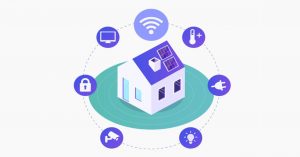SCM Software: A Key Tool for Enhancing Transparency in Scope 3 Reporting

In the modern business landscape, transparency and sustainability have become critical drivers of corporate strategy. Companies are increasingly held accountable for their environmental impact, not just by regulators, but also by consumers, investors, and other stakeholders. One of the most challenging yet essential aspects of sustainability reporting is Scope 3 emissions reporting. SCM software plays a pivotal role in enhancing transparency and accuracy in this area.
Understanding Scope 3 Emissions
Scope 3 emissions encompass all indirect emissions that occur in a company’s value chain, excluding direct emissions (Scope 1) and indirect emissions from purchased electricity (Scope 2). These emissions can arise from a variety of sources, including purchased goods and services, business travel, employee commuting, and waste disposal. Due to their broad and indirect nature, Scope 3 emissions are often the most significant and challenging to measure, manage, and report.
The Role of SCM Software
SCM software is designed to optimise and streamline supply chain operations, providing end-to-end visibility and control over the entire supply chain process. When it comes to Scope 3 reporting, SCM software offers several key benefits that enhance transparency and accuracy.
Comprehensive Data Collection
Accurate Scope 3 reporting requires detailed data from various points in the supply chain. SCM software enables companies to collect, manage, and analyse vast amounts of data from suppliers, transportation networks, and other sources. This comprehensive data collection capability is crucial for identifying all potential sources of Scope 3 emissions.
Supplier Collaboration and Management
A significant portion of Scope 3 emissions comes from upstream suppliers. SCM software facilitates better collaboration and communication with suppliers, ensuring they adhere to sustainable practices and provide the necessary emissions data. By integrating supplier management features, SCM software helps companies track and evaluate supplier performance on sustainability metrics, leading to more accurate Scope 3 reporting.
Real-Time Monitoring and Reporting
One of the main challenges in Scope 3 reporting is the dynamic nature of supply chains. SCM software provides real-time monitoring of supply chain activities, enabling companies to track emissions as they occur. This real-time visibility ensures that companies can quickly identify and address any deviations from their carbon management plans, resulting in more accurate and timely reporting.

Data Integration and Analytics
SCM software integrates data from various sources, providing a unified platform for emissions analysis. Advanced analytics capabilities allow companies to process and interpret this data, identifying trends and areas for improvement. By leveraging these insights, companies can develop more effective strategies for reducing Scope 3 emissions and enhancing overall sustainability.
Enhanced Transparency and Compliance
Transparency is a key component of effective Scope 3 reporting. SCM software provides detailed and transparent reporting capabilities, allowing companies to meet regulatory requirements and stakeholder expectations. The ability to generate comprehensive reports on supply chain emissions builds trust with consumers and investors, demonstrating a commitment to sustainability.
Conclusion
In the pursuit of sustainability, accurate and transparent Scope 3 reporting is essential. SCM software emerges as a critical tool in this endeavour, offering comprehensive data collection, real-time monitoring, supplier collaboration, and advanced analytics. By integrating SCM software into their sustainability strategies, companies can enhance the transparency and accuracy of their Scope 3 reporting, leading to improved environmental performance and stronger stakeholder relationships. As the demand for corporate accountability continues to grow, the role of SCM software in Scope 3 reporting will only become more significant, helping businesses to navigate the complexities of sustainability with greater ease and confidence.






